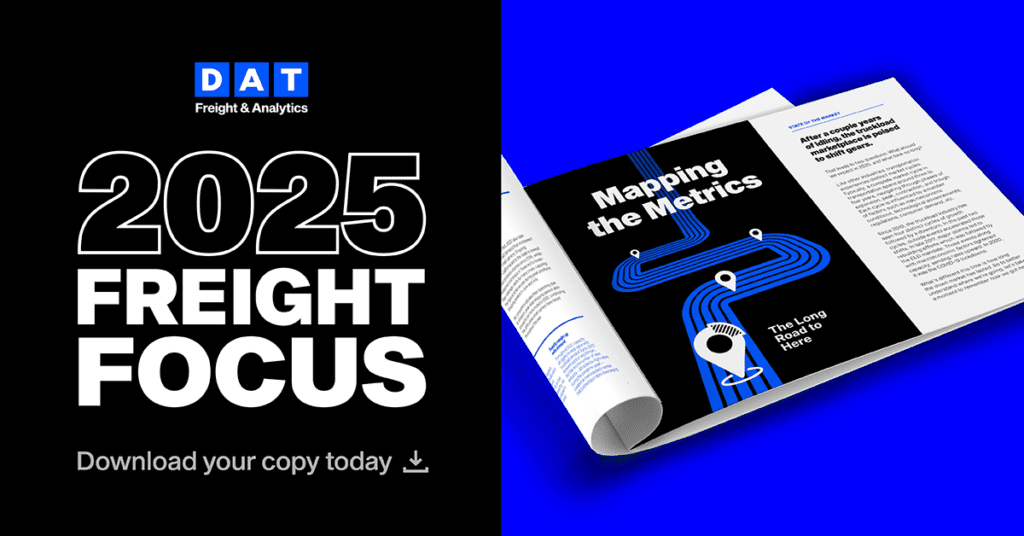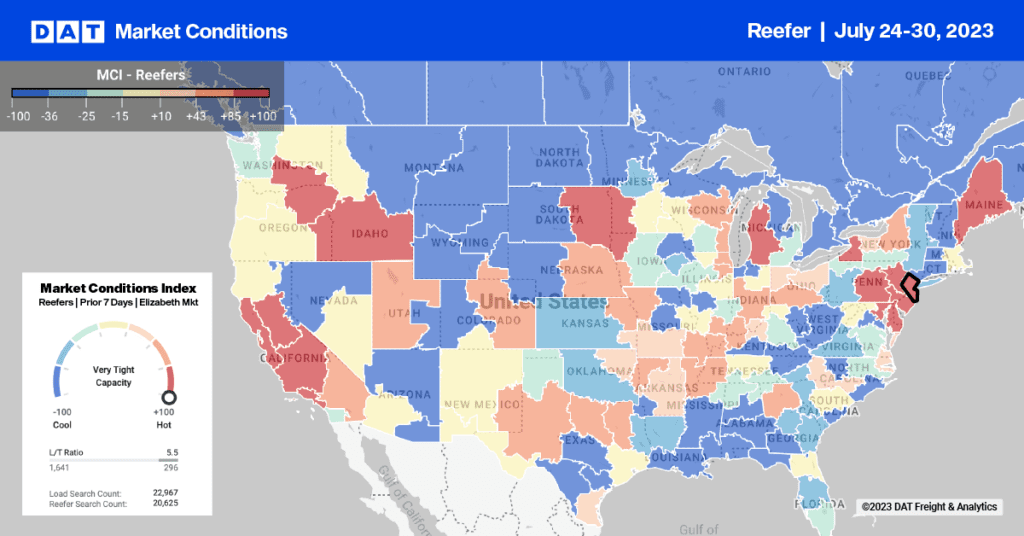Reefer rates rise in June. Right. And grass is green. Water is wet. No surprises.
So what’s different this year?
For starters, the June harvests came in about two weeks earlier this year than they did in 2011. I compared last week’s reefer rates to the rates from same week of last year. This year, the rates are up by 9.1% in the Texas Rio Grande Valley (centered in Brownsville or McAllen — take your pick) while further west, the produce markets of Nogales, Santa Ana and Fresno are up by 14%, 13% and 18%, respecitvely. You can see the average rates in the table below. I included the fuel surcharge at $0.50 per mile, which is the same this week as it was at this time last year.

I thought the change in rates might be a timing issue, so I also compared last week’s rates to outbound rates in the same markets two weeks later, in the week ending June 21, 2011. Sure enough, the differences all but disappear in the Western markets. Last week’s rates were within two percentage points of the prevailing rates in the week ending June 21, 2011 in Nogales, Santa Ana and Fresno.
Southern Texas and Central Florida were exceptions, Rates out of Texas are higher than last year’s, no matter which date you pick in June 2011. In Central Florida, June harvests appear to be waning in the Lakeland and Immokalee markets, and last week’s rates are already comparable to the week of June 7, 2011.
The big question still remains. Will reefer rates continue to rise through the month of June? That is the typical pattern, but it is not clear whether rates have already peaked for this year. There are harvests in other regions in July and August, of course — but the June produce markets are the biggest contributors to peak reefer rates.


